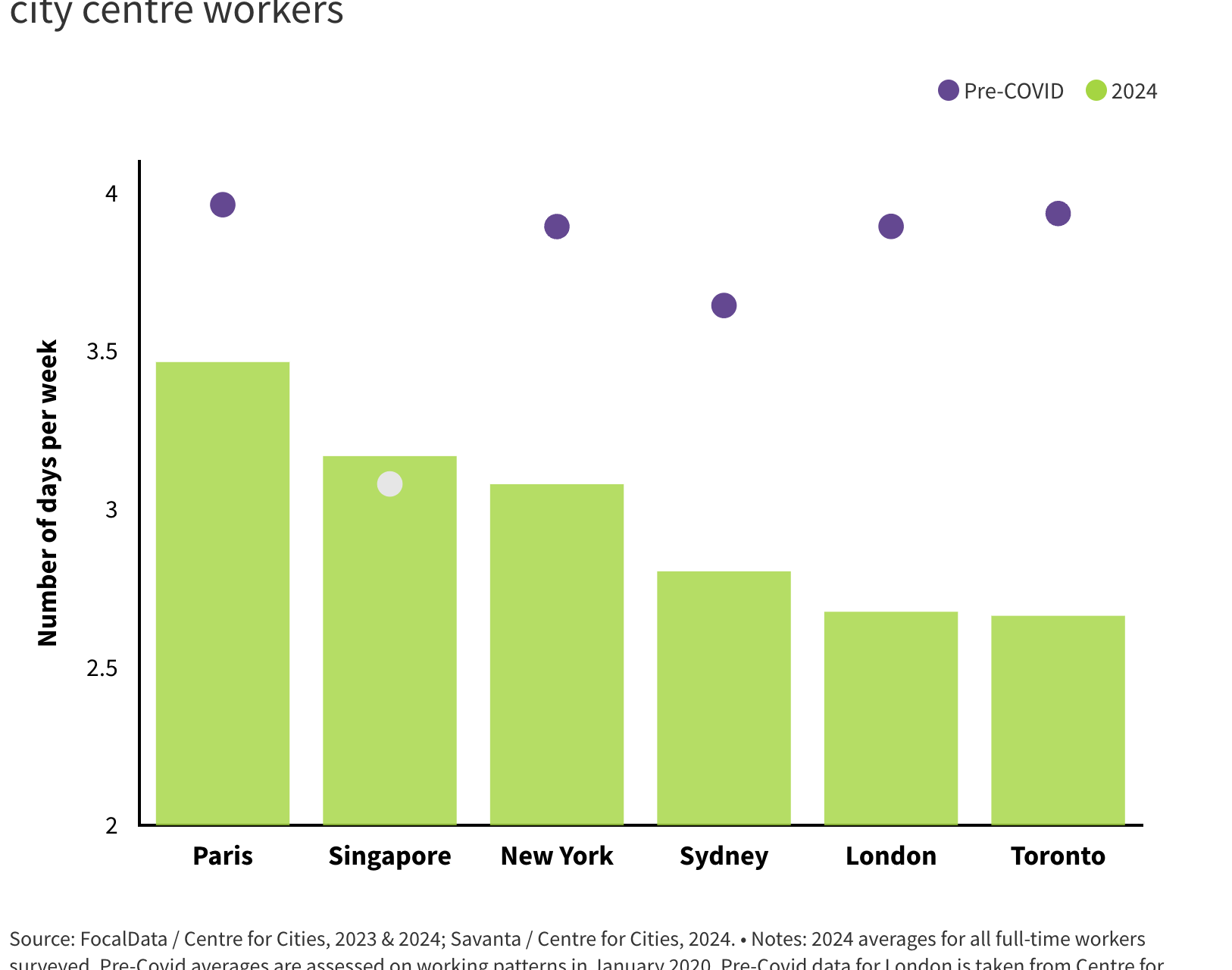Londoners more likely to steer clear of the office than New Yorkers and Parisians
When the Covid-19 pandemic forced us all into telework, it was a dream come true for some and a nightmare for others, depending on arrangements at home and the nature of our jobs.
Four years later, many have stuck to a hybrid situation with Londoners apparently more loath to return to the office than Parisians and New Yorkers, according to a report from the Centre for Cities think-tank.
Photo: Screenshot from Centre for Cities website.
According to its survey of employers and employees across six high-income cities, the think tank found that Londoners working in central London went to the office on average just 2.7 days a week, up from 2.2 days a week last year.
Other cities surveyed were central Paris, New York, Singapore, Sydney and Toronto with Torontonians the least likely to be hotfooting it to the office on a Monday morning.
Parisians were keenest, with office attendance averaging 3.5 days a week, followed by Singapore at 3.2 days a week and New Yorkers’ clocking in for an average of 3.1 days.
According to the report, employers in Toronto and Sydney fear obliging people to return to the office full time in case they quit, despite the fact that only one in 10 employees said that they would do so.
Forty-two percent of Londoners cited the cost of the commute as their main reason to stay at home, prompting the suggestion from the think tank that London employers should subsidize their workers’ travel as Parisian employers are obliged to do.
The cost of the commute may explain why younger employees are more likely to come to the office than their older counterparts as the former are more likely to live centrally and the latter to live outside the city altogether, according to the Financial Times.
While Londoners are dragging their feet on office attendance, 95% of those surveyed did acknowledge the benefits of working together face-to-face as a team and rubbing along over the course of the day.
The think tank suggests that London could find its productivity tumble in comparison to the other cities as office time is known to facilitate skills and information sharing, and thereby boost the company’s overall productivity.
But according to Laiatech news site, teleworking can also boost productivity as workers spend less time travelling to and from the office, thereby devoting more time to the tasks in hand.
The tech outlet cites other advantages to teleworking including reduced environmental impact and flexibility which 52% of Londoners gave as their main reason for keeping office hours to a minimum, according to the think tank’s report.
Meanwhile, a review, published in the Journal of Occupational Health, tackled a large volume of studies on the pros and cons of telework, focusing on three themes – home environment, the effect on career and home life, and the impact on health.
“Teleworking was particularly good for creative things, but much more difficult dealing with tedious matters. A lot of people worried about career prospects – this feeling that if you’re not present in the office, you’re going to get overlooked,” Professor Neil Greenberg, one of the study’s authors, told The Guardian.
Regarding health, teleworking was linked to “an increase in intake of vegetables, fruit, dairy, snacks, and self-made meals; younger workers and females benefited the most in terms of healthier eating,” the review said.
Employers concerned telework enthusiasm lay in taking the easy option were found to be mistaken; according to the review, employees working from home are less likely to take time off sick, tend to work longer hours and to work evenings and weekends.
Never miss a story! Click here to follow The Daily Digest.
More for you
Top Stories





























